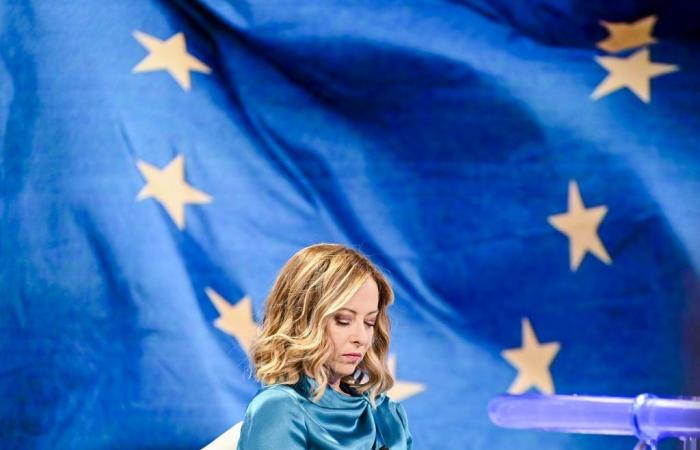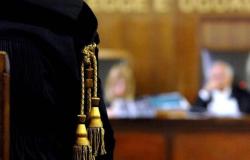Should we give meaning to the reversal of trend that would mark a sudden lack of love for political communication? Perhaps the perception of the political weight of the European elections in Italy has not had the necessary depth, and concrete evidence would be offered by the further decline in voter participation. Pino Pisicchio’s column
06/24/2024
If less than half of those entitled to vote turn out to vote, the preciousness of every single vote increases. If political parties celebrate their total default in favor of a leaderism without restraints and temperaments at every electoral round, the search for consensus will only have to be pursued along the leader’s trail. If the participation of the people in the electoral rite is based on emotion rather than reason, each voter will be treated as a “customer” to be earned according to the canons ofadvertising: winshomo consumenslose that cogitans.
The electoral campaign for the European elections, therefore, was also a demanding advertising campaign, which necessarily had to practice methods compatible with the boundlessness of constituencies not suitable for a direct citizen-candidate interface, thus proposing itself as an ideal space for communication ” dematerialized”. A propaganda that had to almost completely remove the “floor” apostolate, to favor digital channels, which were particularly in vogue five years ago, the golden years of Salvini’s “Beast”, pervasive to the point of obsessiveness on social media.
On the other hand, the alternative propaganda tools to digital, from printed paper to TV, are quite damaged if not completely devoid of effectiveness: newspapers are now a niche privilege and TV is only in vogue among the older public, and the time of election commercials, the archeology repertoire of the first private televisions, has also passed. In addition to billboards – which are still popular but only to reconnect brands with great leaders – only social media remains. But did it work?
The long election eve had created a climate of strong concern, mindful of the imposing digital threat in the 2019 electoral campaign, on the possibility of hacking, use of AI and fake news capable of altering the conditions of free democratic debate. With this (right) fear, the EU has adopted regulations such as the AI-Act, to limit the risks of machine learning systems (by setting a general regulation that imposes transparency requirements on the subject) and the Digital Services Act (DSA ), which imposes on the largest online platforms (those with more than 45 million average monthly users) the obligation to adopt adequate anti-manipulative measures in view of the elections.
What happened then? Have Putin’s infamous hackers arrived? Did zerozerosette’s Specter go into action, slipping viruses and malware even into the mobile phone of the housewife from Voghera who exchanges photos of the soufflé with her cousin from Gallarate on Facebook? None of this, it would seem. The news is different: the internet, at least in Italy, would have had a minor role, certainly in contrast with the trend of recent years. There is interesting data in this regard developed by the analysis company DeRev which shows a tendency towards a reduction in political investment in social propaganda.
These are completely subdued figures which – moreover – tell of an attention in the last month of the electoral campaign, that of May, even halved compared to that of 2019: according to DeRew, in fact, the investment on the social network traditionally most used by politics, Facebook, which in the previous elections saw a spending commitment from the major parties of no less than 200,000 euros per month, in this electoral round did not exceed the figure of 110 thousand euros. The outcome of the analysis relating to the universe of party followers among the major platforms in the field appears even more eloquent: in first place the Five Star Movement with 2.7 million, followed by what remains of Salvini’s “Beast” (with 1 .8), from Fratelli d’Italia (1.3), from the PD (1 million), from the Renzi-Bonino list which gathers an audience of almost 800 thousand social supporters, from Calenda (just over 330 thousand) on a par with the Greens and Left Alliance.
It is interesting to note that the popularity of the social network cannot be linked in any way to the electoral results: compared, for example, to the audience of followers of the Five Star Movement, there are even 400,000 fewer voters at the polls, while for FdI and Pd electoral results increase fivefold compared to the area of virtual supporters. We considered the performances of the parties and not of the individual candidates who, through blogs, chats and generous mailing lists, have put the Internet universe on fire, bringing important marginal advantages to those who had consolidated habits of dealing with social media, such as the champion of preferences in the south De Caro, and not to those who turned out to be stars of the web late comeronly during the electoral campaign.
Moral of the story: should we give meaning to the reversal of trend that would mark a sudden lack of love for political communication? Perhaps the perception of the political weight of the European elections in Italy has not had the necessary depth, and concrete evidence would be offered by the further decline in voter participation. And perhaps the platforms have remained on the line of prudence in political communication compared to the past, waiting to understand how the measures and sanctions adopted by the EU and individual sovereign states work. Certainly, however, something has changed. We’ll see to what extent.






